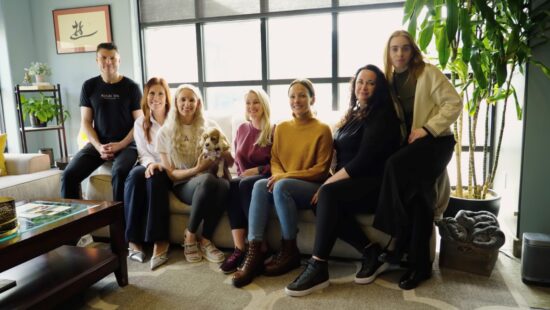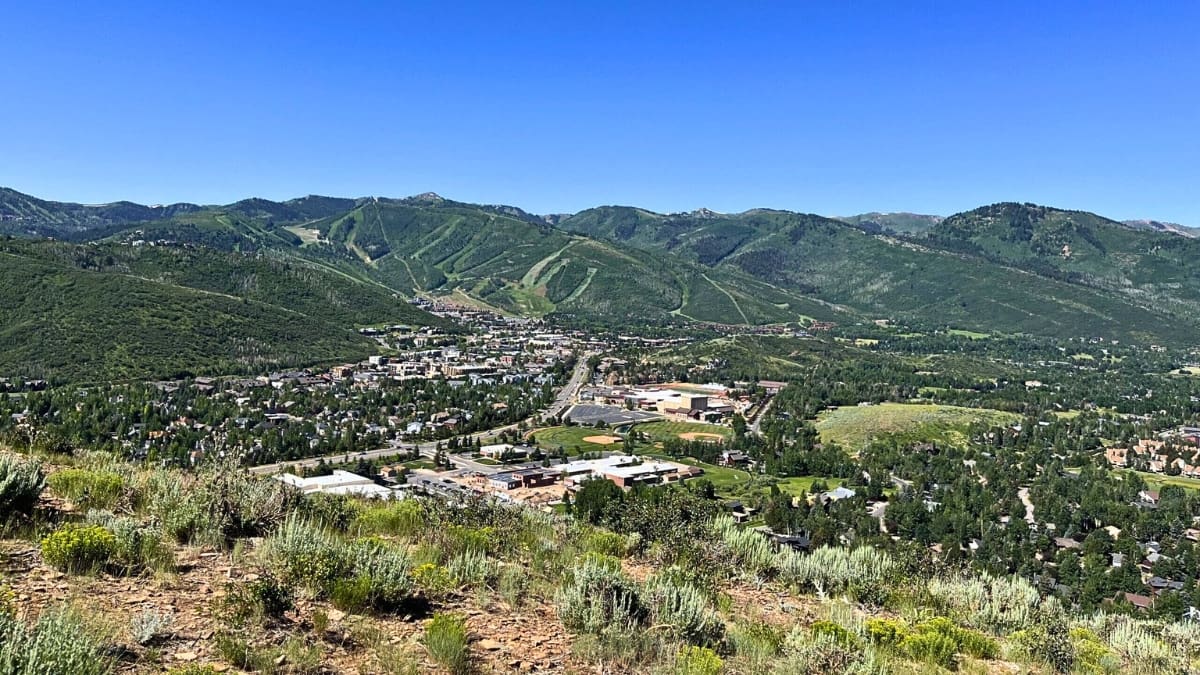Community
Wasatch Back Economic Summit releases key findings
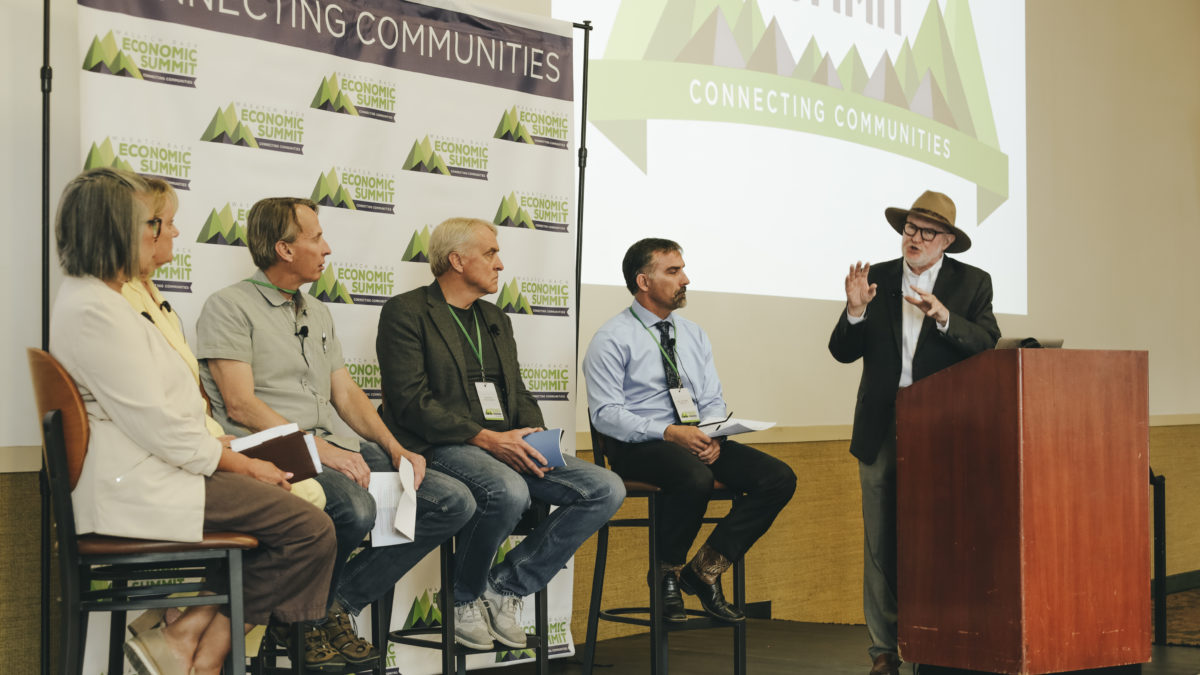
Yvonne Barney, Nann Worel, Chris Robinson, Mark Nelson, and Matt McCormick at the 2022 Wasatch Economic Back Summit. Photo: Park City Chamber of Commerce & Visitors Bureau.
PARK CITY, Utah. – The Park City Chamber of Commerce Convention and Visitors Bureau released key takeaways following its 2022 Wasatch Back Economic Summit. The event, held in partnership with Heber Valley Chamber of Commerce, Wasatch County, Summit County, and Park City Municipal, highlighted economic issues facing Summit and Wasatch counties.
“[The Wasatch Economic Summit is] a high-level overview of what’s happening in the region,” said Vice President of Partner Services Scott House. “The Economic Summit is a great way to build baseline knowledge on all those critical topics. And it makes things seem less intimidating.”
The Summit helps locals understand what Summit and Wasatch Counties are focused on and working toward. The breakout sessions covered various top-of-mind topics and offered elected officials to hear solution ideas and opinions from businesses and homeowners.
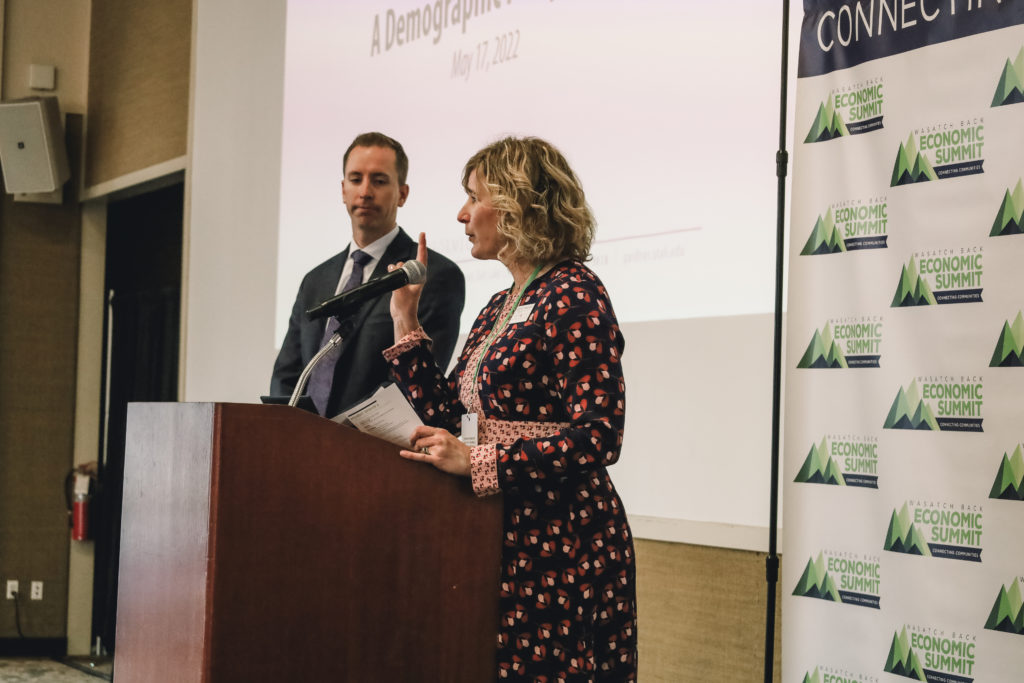
From real estate to retail, residents and business owners across all professions joined the Summit to discuss economic development, population growth, sustainable tourism, housing, and transportation. House noted 230 registered attendees, about 60% from Summit County and 40% from Wasatch County, and a handful of visitors from Salt Lake City and the Utah Valley.
Director of Demographic Research and State Data Center Coordinator at the University of Utah, Mallory Bateman, M.Sc., was the keynote speaker. The elected officials panel consisted of Nann Worel, Park City Mayor Matt McCormick, Kamas City Mayor Mark Nelson, Wasatch County Council, and Chris Robinson, Summit County Council, Vice Chair.
Breakout sessions discussed what all could be linked to population and visitor growth in the last five years: The Future of Employee Retention and Recruitment, A Regional Approach to Housing, Wasatch Back Future Growth, Regional Transit Solutions, Legislative Update, and Sustainable Tourism. Find presentations on major topics discussed here.
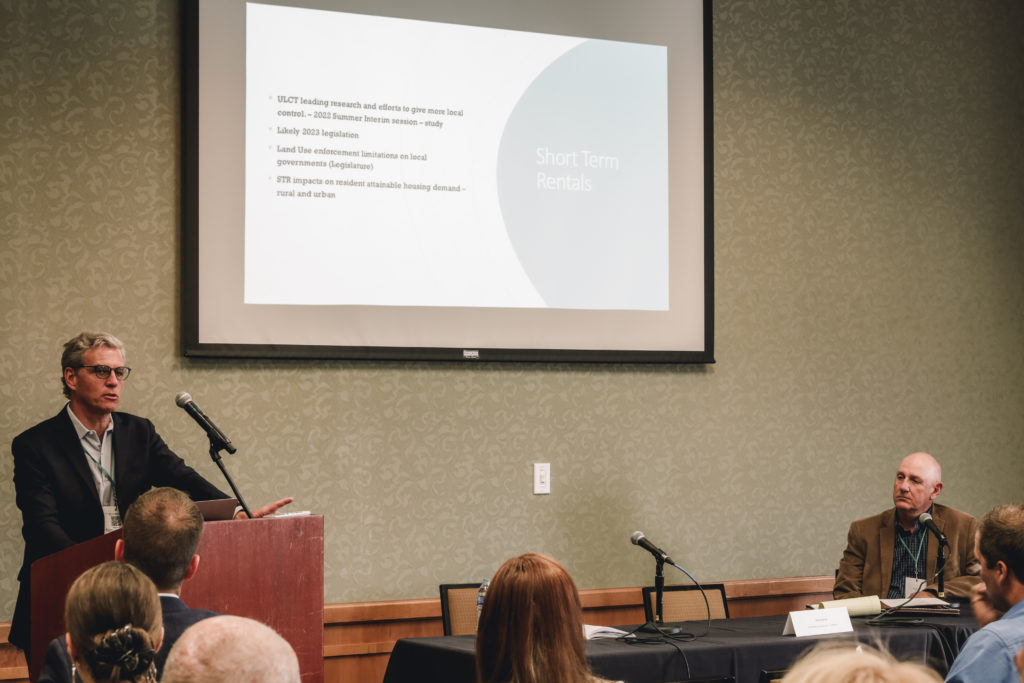
A report released by the Chamber noted these statistics as key findings:
- As of 2021, the region’s population increased by 12.3% since 2016, growing by 8,702. Population is expected to increase by 10.5% between 2021 and 2026, adding 8,390.
- From 2016 to 2021, jobs increased by 8.0% in Wasatch Back (Summit and Wasatch Counties) from 39,109 to 42,219. This change outpaced the national growth rate of 0.4% by 8.4%. As the number of jobs increased, the labor force participation rate decreased from 75.0% to 70.2% between 2016 and 2021.
- Concerning educational attainment, 31.6% of the selected regions’ residents possess a bachelor’s degree (11.2% above the national average), and 6.0% hold an associate degree (2.7% below the national average).
- The top three industries in 2021 are Other Amusement and Recreation Industries, Restaurants and Other Eating Places, and Local Government, Excluding Education and Hospitals.
The Economic Summit also noted that people of the Wasatch Back still look favorably toward tourism, a fact that encouraged House and lent a hopeful tone to the event and future of the Wasatch Back.
Looking forward to 2023, House hopes to see more residents engaging in the Economic Summits. Summit organizers are also looking to live stream, Zoom, or record portions of the event in the future to involve more people.
“The growth, it’s not slowing down, particularly along the Wasatch back. It’s something that our counties and elected officials more than ever seem to be actively working towards solutions to deal with that growth. One of the biggest things that I took away is we have an engaged community. Whether from the Chamber side or the governmental side, people are engaged; they’re already thinking about solutions. And whether that solution is regional transit or regional housing, those conversations are happening now more than ever.”















